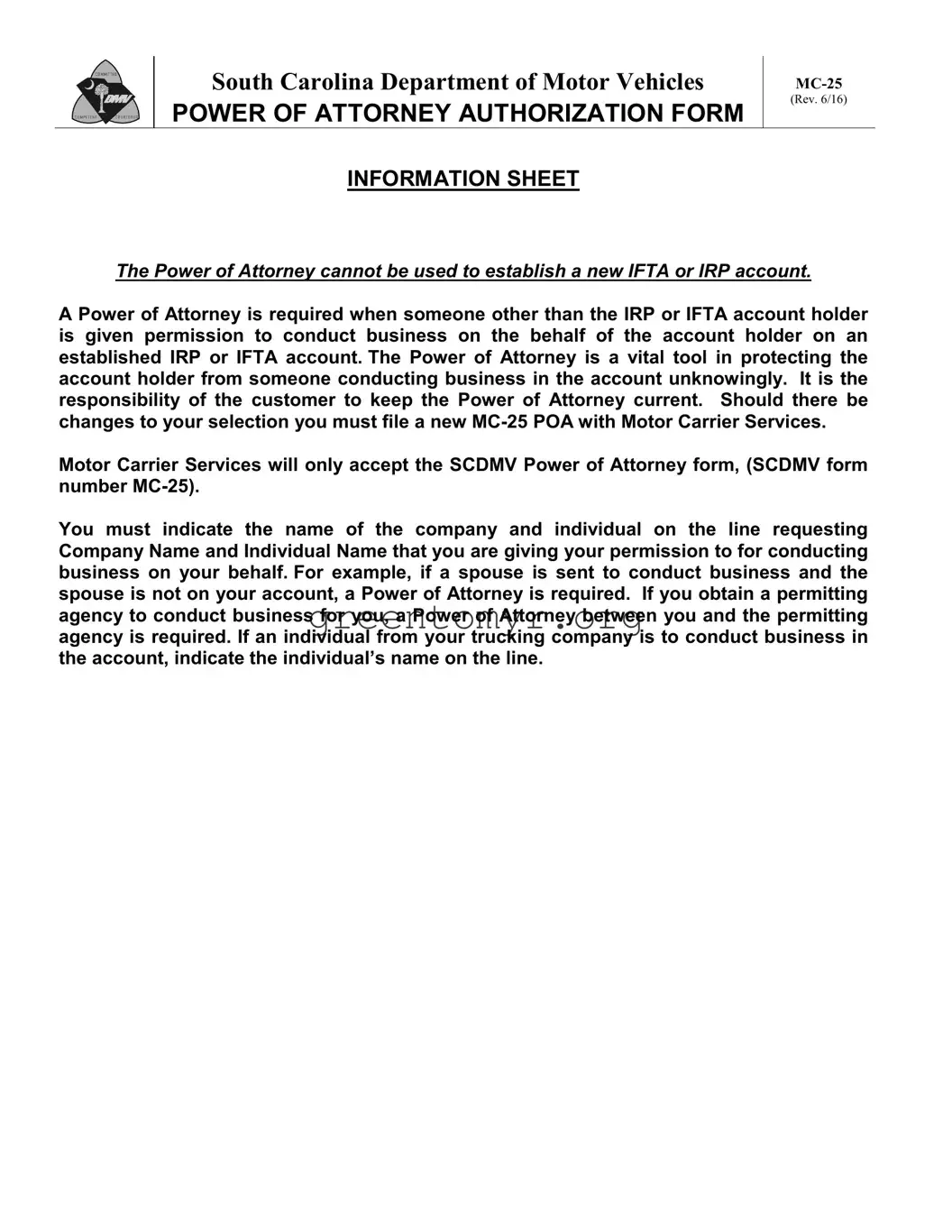Completing a Vehicle Power of Attorney (POA) form, specifically the MC-25 form, is an important task that requires careful attention to detail. Unfortunately, individuals often make common mistakes that can lead to delays or complications. By being aware of these errors, one can increase the chances of a successful submission.
One frequent mistake is not providing all required information. The MC-25 form asks for specific details such as the vehicle identification number (VIN), make, model, and year of the vehicle. Omitting any of this information can result in the form being rejected. Always double-check that every box is filled out completely.
Another common error involves signatures. It is essential to ensure that the person granting the power of attorney signs the form in the correct place. Sometimes, individuals either forget to sign or sign in an incorrect section, which can invalidate the form. Additionally, the date of the signature should also be filled in accurately.
Do not overlook the importance of identifying the attorney-in-fact correctly. Providing the full name and contact information for the person who will act on behalf of the vehicle owner is crucial. If this information is incomplete or incorrect, it could cause confusion in future transactions.
Many people also misinterpret the purpose of the POA form. The Vehicle POA is intended for specific matters concerning the vehicle, such as registration or transfer of ownership. Submitting the form without a clear understanding of its intended use can lead to misuse of authority, which complicates future dealings.
Another oversight occurs when individuals fail to check local laws or regulations regarding the use of the POA. Different states have varying requirements for vehicle transactions. Not verifying these details can lead to non-compliance, rendering the form ineffective.
Finally, there is the issue of maintaining a copy of the completed form. After successfully filling out the MC-25 form, it’s important to keep a duplicate for personal records. This allows for reference in the event of disputes or questions in the future.
By keeping these common mistakes in mind, individuals can navigate the process of completing the Vehicle POA form more effectively. A little attention to detail can go a long way in ensuring that the form is filled out correctly and that the intended actions can be carried out smoothly.


